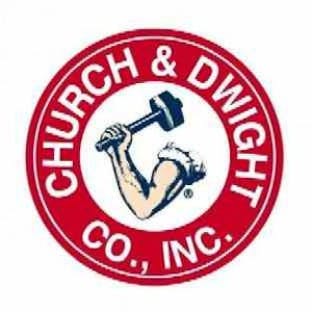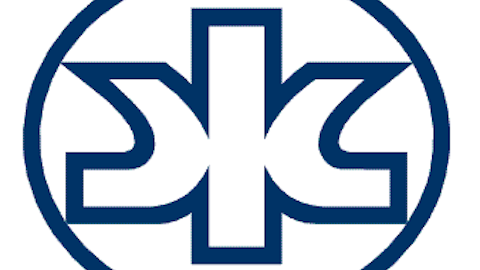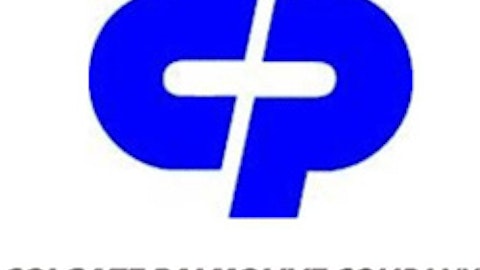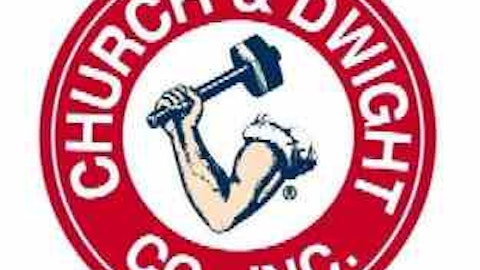Investing in companies that make consumer based products represent an optimal strategy due to five qualities:
1. Produce needed products integral to modern clean living
2. Immune to obsolescence unlike technology companies
3. Generate repeat business which means consumers use the products up in short order and need to buy more repeatedly.
4. If needed, minor price adjustments can make up for volume losses
5. Simple to understand and interpret

Repeat cleaning
In the modern world, it’s customary to stay clean, and whether you wash cloths once a day, once a week, or even once a month eventually you will run out of laundry detergent. With that said, you may buy Arm & Hammer laundry detergent from “consumer packaged goods” company Church & Dwight Co., Inc. (NYSE:CHD).
Church & Dwight Co., Inc. (NYSE:CHD) operates in three simple product categories: personal care, household, and specialty products. The personal care category involves deodorant, tooth paste, vitamins, and hair removal. The household category includes its famous baking soda, pet care, household cleaner, and laundry detergents. Church & Dwight Co., Inc. (NYSE:CHD)’s specialty division caters mostly to the industrial markets in areas such as animal nutrition and cleaning. Moreover, the company divides itself along simple geographical lines: consumer domestic, consumer international, and specialty products.
Church & Dwight Co., Inc. (NYSE:CHD) possesses excellent fundamentals. In 2012 its revenue and free cash flow increased 6% and 24% respectively. Church & Dwight Co., Inc. (NYSE:CHD) did take on some debt last year but it still only comes to 32% of stockholder’s equity, below my personal threshold of 50%. Return on equity came in at a respectable 17%. A return on equity greater than 12% is considered good as a rule of thumb.
Last year, Church & Dwight Co., Inc. (NYSE:CHD) prudently paid out 30% of its free cash flow in dividends. Currently, Church & Dwight pays $1.12 per year in dividends and yields 1.8% as of this writing.
Church & Dwight owns a strong little portfolio of eight “power brand” products making it easier for management to handle. Product innovation and geographical expansion should result in shareholder rewards.
Repeat cleaning…but bigger
A much larger version of Church & Dwight, Colgate-Palmolive Company (NYSE:CL) makes well-known brands such as Colgate tooth paste, Palmolive dish detergent (hence the name), Irish Spring soap, and Speed Stick deodorant.
Colgate-Palmolive Company (NYSE:CL) may not come to your mind when you try to think of a “hot stock.” However, slow and steady wins the race. People continue to buy their products through tough times as well as in good times. The stock returned 1,140% over the past 20 years, versus 452% for the S&P 500 according to its investor relations website.
In 2012, Colgate-Palmolive Company (NYSE:CL) grew its revenue and free cash flow 2% and 3% respectively. Cash comprised 37% of stockholder’s equity. Its long-term debt to equity ratio resided in the high range at 206%. Return on equity clocked in at 103% mostly likely stemming from a low equity base due to high debt.
On the dividend front Colgate-Palmolive Company (NYSE:CL) belongs to the S&P 500’s list of dividend aristocrats, meaning Colgate boosted dividends for at least the past 25 years. Last year, Colgate-Palmolive Company (NYSE:CL) paid 47% of its free cash flow out in dividends. Currently the company pays $1.36 per share per year translating into a 2.3% return as of this writing.
The future of Colgate-Palmolive Company (NYSE:CL) gets summed up in the following phrase: Toothpaste never goes out of style. Look for Colgate-Palmolive to innovate with new varieties of its products. Moreover, shareholders should benefit from product price increases along the way.
Focus brings prosperity
WD-40 Company (NASDAQ:WDFC), the maker of the famous can of lubricant that gets used in everything from engine parts to garage doors, understands what it’s good at: lubricating stuff. The business operates in two product groups: multi-purpose maintenance products which the company considers its main focus and home care and cleaning products that it considers its “harvest products.”
Overall, WD-40 Company (NASDAQ:WDFC) grew revenue and free cash flow 2% and 16% respectively last year. The vast majority of the revenue gains came from its multipurpose maintenance products which increased 3% versus a 2% decrease for its household cleaning products segment.
WD-40 Company (NASDAQ:WDFC) possesses an excellent balance sheet with cash comprising 38% of stockholder’s equity and no long-term debt. Its return on equity comes in at 19%.
Look for WD-40 Company (NASDAQ:WDFC) to slowly exit its household products segment altogether and focus on its wide variety of WD-40 Company (NASDAQ:WDFC) multi-purpose maintenance lines as it comes out with a wider variety of lines for different mechanical functions. You can really benefit from a company that understands and expands its core competency.
Conclusion
Overall, these companies sell needed products. Relatively immune from obsolescence they operate in easy to understand businesses with repeat purchase patterns that can manage revenue growth with prudent pricing. Look for these companies to continue to respond to customers wants and needs with new products while also expanding into new geographical territories, generating shareholder wealth along the way.
The article 3 Consumer Companies for Your Watchlist originally appeared on Fool.com.
William Bias has no position in any stocks mentioned. The Motley Fool has no position in any of the stocks mentioned. William is a member of The Motley Fool Blog Network — entries represent the personal opinion of the blogger and are not formally edited.
Copyright © 1995 – 2013 The Motley Fool, LLC. All rights reserved. The Motley Fool has a disclosure policy.




